- News
- Reviews
- Bikes
- Accessories
- Accessories - misc
- Computer mounts
- Bags
- Bar ends
- Bike bags & cases
- Bottle cages
- Bottles
- Cameras
- Car racks
- Child seats
- Computers
- Glasses
- GPS units
- Helmets
- Lights - front
- Lights - rear
- Lights - sets
- Locks
- Mirrors
- Mudguards
- Racks
- Pumps & CO2 inflators
- Puncture kits
- Reflectives
- Smart watches
- Stands and racks
- Trailers
- Clothing
- Components
- Bar tape & grips
- Bottom brackets
- Brake & gear cables
- Brake & STI levers
- Brake pads & spares
- Brakes
- Cassettes & freewheels
- Chains
- Chainsets & chainrings
- Derailleurs - front
- Derailleurs - rear
- Forks
- Gear levers & shifters
- Groupsets
- Handlebars & extensions
- Headsets
- Hubs
- Inner tubes
- Pedals
- Quick releases & skewers
- Saddles
- Seatposts
- Stems
- Wheels
- Tyres
- Health, fitness and nutrition
- Tools and workshop
- Miscellaneous
- Tubeless valves
- Buyers Guides
- Features
- Forum
- Recommends
- Podcast
feature
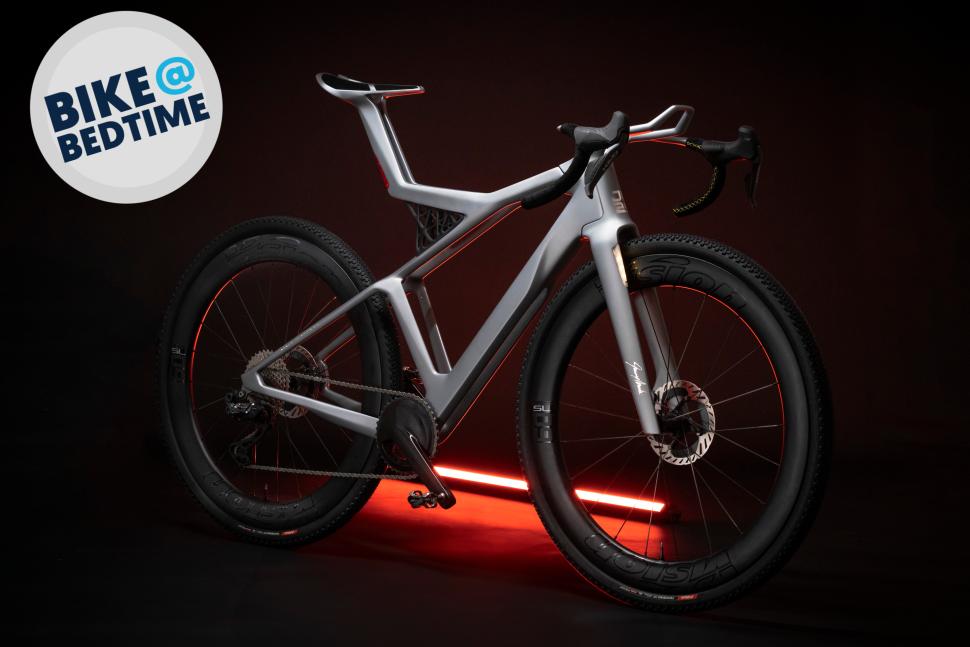 2024 JonnyMole Dream Machine 2.5 - 1 (4)
2024 JonnyMole Dream Machine 2.5 - 1 (4)Dream or nightmare? JonnyMole's Dream Machine 2.5 is a gravel bike… but not as we know it
Italian design studio JonnyMole has published details of its Dream Machine 2.5 concept bike which it reckons is “the future of gravel cycling”. It’s certainly radical, so let's take a look.
“The Dream Machine 2.5 merges advanced technologies with a captivating design, featuring a unique dual-frame that not only gives the bike a distinctive presence on the road but also delivers superior performance and the ability to integrate a wide range of accessories,” says JonnyMole.
A dual-frame? What does that mean?
The vast majority of bikes have two chainstays and two seatstays in order to accommodate the rear wheel, and JonnyMole extends that division forward, giving its bike two seat tubes, two down tubes, and two top tubes.
> Check out the original JonnyMole Dream Machine from 2013
Some conventional features remain. You get just one bottom bracket shell, and the dual top tubes and down tubes merge towards the front of the bike. The head tube is a single piece too, although the fork has an external steerer.
Why not go with a more orthodox design? JonnyMole reckons that its dual-frame structure “allows unprecedented customisation, enabling cyclists to seamlessly integrate bags and luggage to tackle any adventure with style and convenience”.
> Weird, wild, whacky & cool: 22 of the maddest, baddest and best concept bikes we’ve ever seen
Check out the Instagram video (below) and you’ll see what JonnyMole has in mind. A water bottle fits between the tubes, and bags, presumably made especially for this bike, also slot into the spaces.
The dual-section seat tube is interrupted, merging into extended seatstays which go on to join the top tubes. This bit of the design is a little like you see on Trek’s seventh-generation Madone and its mystery new bike that’s currently being raced by Lidl-Trek in the Dauphiné.
> Trek’s new road bike: what is it and what do we know so far?
The idea is that it is cantilevered “to ensure a smooth and comfortable ride even on the most irregular paths”. In other words, the lack of support behind the top sections of the seat tubes are intended to allow some down/up movement at the saddle.
Speaking of the saddle, that’s integrated into the frame.
“With a rear opening for smoother and more flexible riding, it follows the cyclist's movement on any terrain,” according to JonnyMole.
Okay, but we know how fussy some people are about their saddles – both the model and the positioning – so integrating it into the frame design seems like a bad idea. Interesting, but it’s a hard no from us.
The JonnyMole Dream Machine 2.5 also features integrated lights and brakes.
“Not only do they improve overall aerodynamics, but they also offer a practical and aesthetically pleasing solution,” says JonnyMole.
Up front, the fork integrates with the frame at both the top and bottom of the head tube and melds into the stem and handlebar. Oh, and with yet more integration, this unit also features aero bars. Down below, the front brake bolts to its own special extension behind the dropout, and there’s a vaguely similar design for the rear brake too.
We know what you’re thinking: how would you tweak your ride position? Also, if you damage the handlebar section, say, that’s a lot to replace in one go. In JonnyMole’s defence, this is a concept bike so it’s more about ideas than practicalities. Function usually takes a backseat in these designs.
What do you reckon, though? Good ideas or a load of old nonsense?
Mat has been in cycling media since 1996, on titles including BikeRadar, Total Bike, Total Mountain Bike, What Mountain Bike and Mountain Biking UK, and he has been editor of 220 Triathlon and Cycling Plus. Mat has been road.cc technical editor for over a decade, testing bikes, fettling the latest kit, and trying out the most up-to-the-minute clothing. He has won his category in Ironman UK 70.3 and finished on the podium in both marathons he has run. Mat is a Cambridge graduate who did a post-grad in magazine journalism, and he is a winner of the Cycling Media Award for Specialist Online Writer. Now over 50, he's riding road and gravel bikes most days for fun and fitness rather than training for competitions.
Latest Comments
- Rendel Harris 32 min 53 sec ago
Do enlighten us with yours. If you think that refusing to take the British national women's champion to compete in the class in which she is...
- Simon E 56 min 49 sec ago
Not forgetting the 5p 'temporary' cut in 2022, resulting in an estimated £3 billion of lost revenue each year....
- ChrisA 2 hours 34 min ago
You want solar panels? Yours for €1659. https://widepathcamper.com/spare-part/428629/solar-cell-kit-complete-wit...
- Beachboy 3 hours 12 min ago
If you want to see a real demonstration, albeit on social media from kick ball fans, tell them you are keeping the trees but making the road a...
- ErnieC 3 hours 49 min ago
So sweep it under the rug and play the genocide card against smaller nations? Should not be difficult for UCI to ban IPT, UAE, Bahrain victorious...
- CyclingGardener 4 hours 1 min ago
My very first LED front light - a present, so possibly expensive - proudly stated that it was visible half a mile away or something, then in the...
- hawkinspeter 4 hours 38 min ago
Thanks, but I'll give Xitter a miss. I never used Twitter back in the day (well apart from an account for automated alerts on servers), but I...
- ErnieC 4 hours 40 min ago
We should also be asking if XDS-Astana should be allowed to compete based on the persecution and genocide of the Uyghur people and other Muslim...
- HLaB 5 hours 45 min ago
You say they are only compatible with round bars, perhaps that should be fully compatible. I've been running the older set on my flat TT bars since...
- mdavidford 7 hours 17 min ago
The template at the top of that Wikipedia entry works on so many levels:
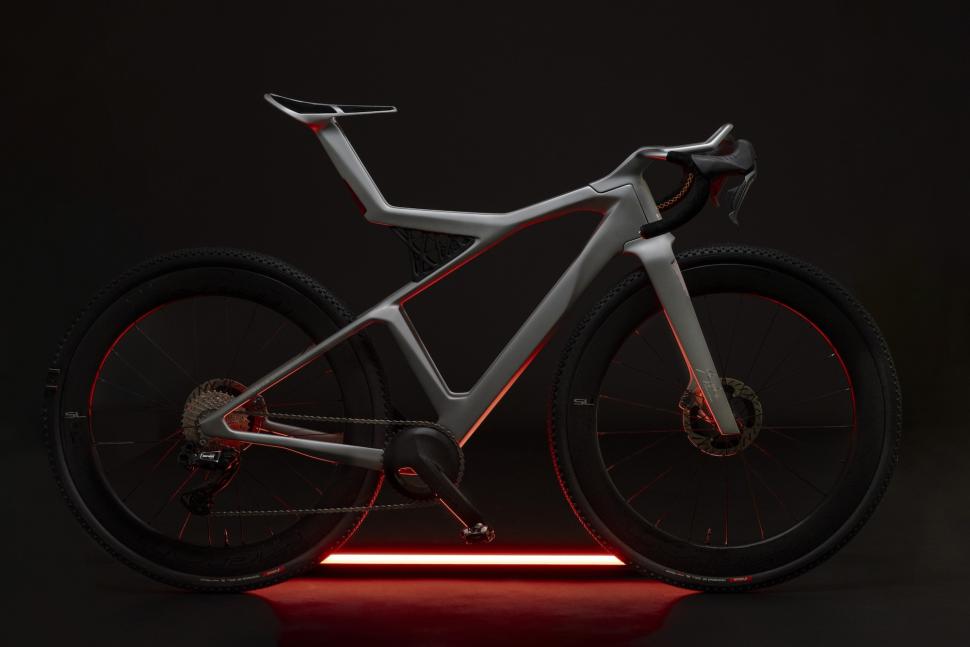
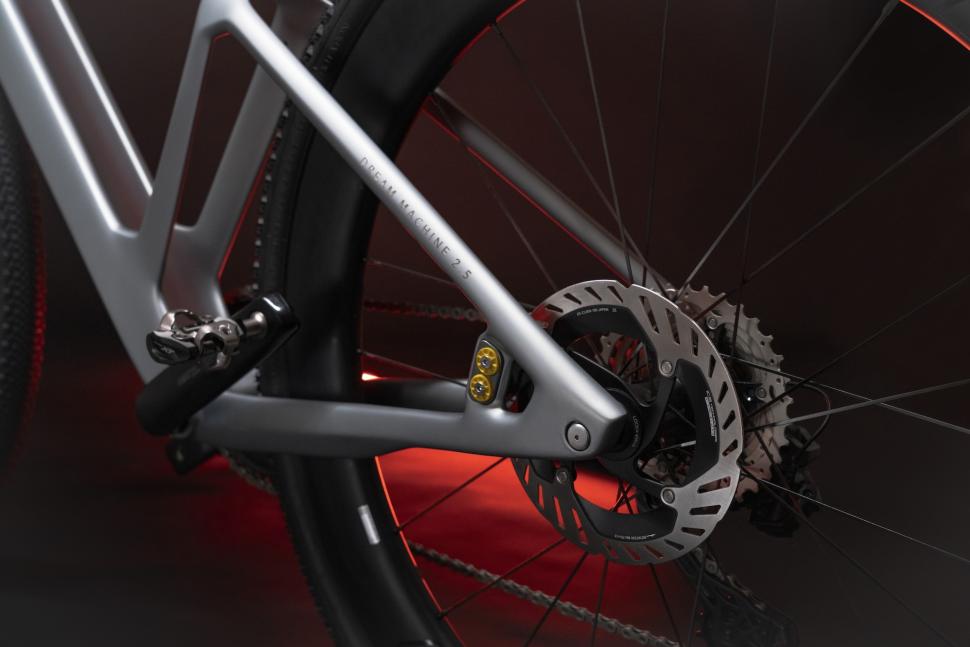
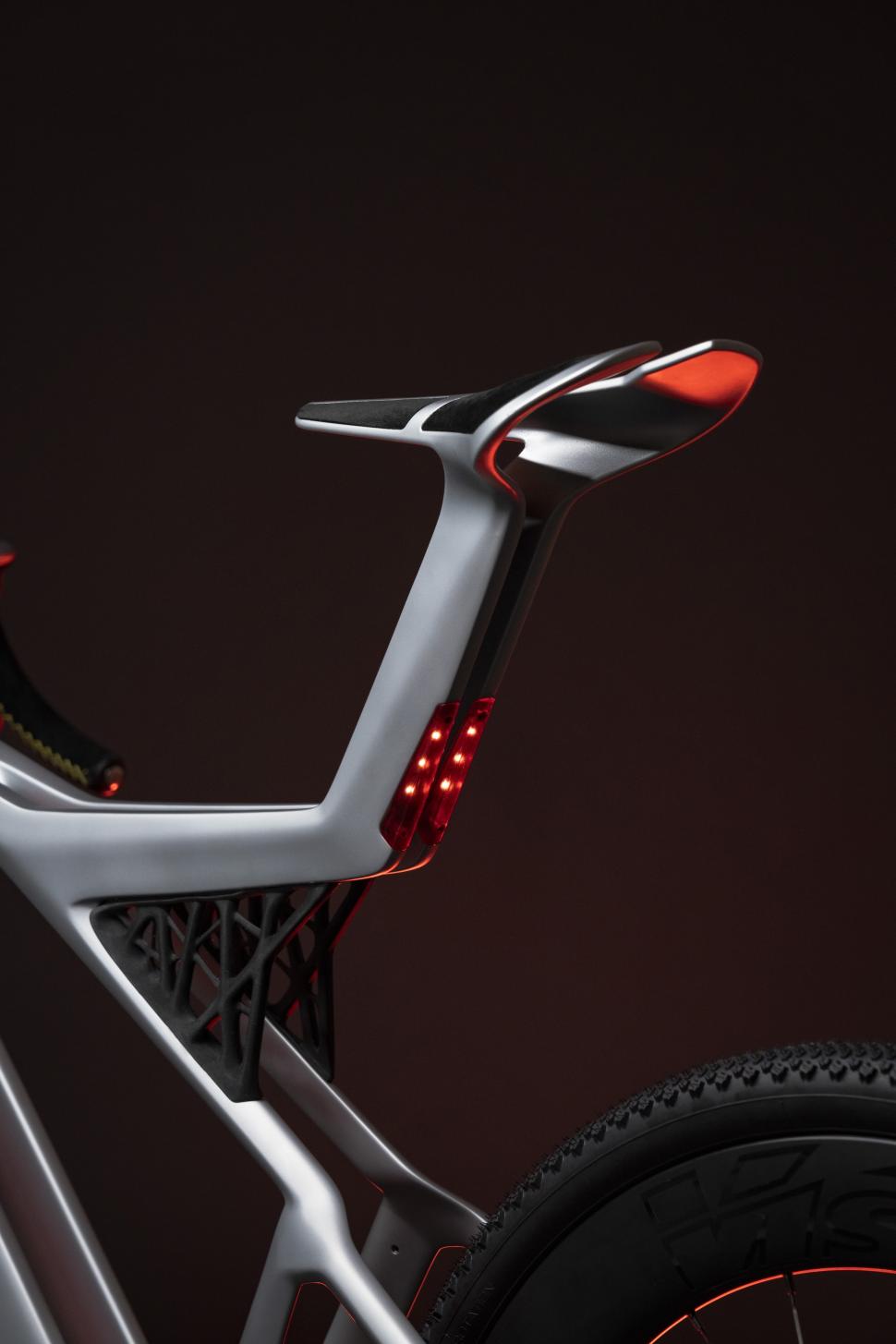
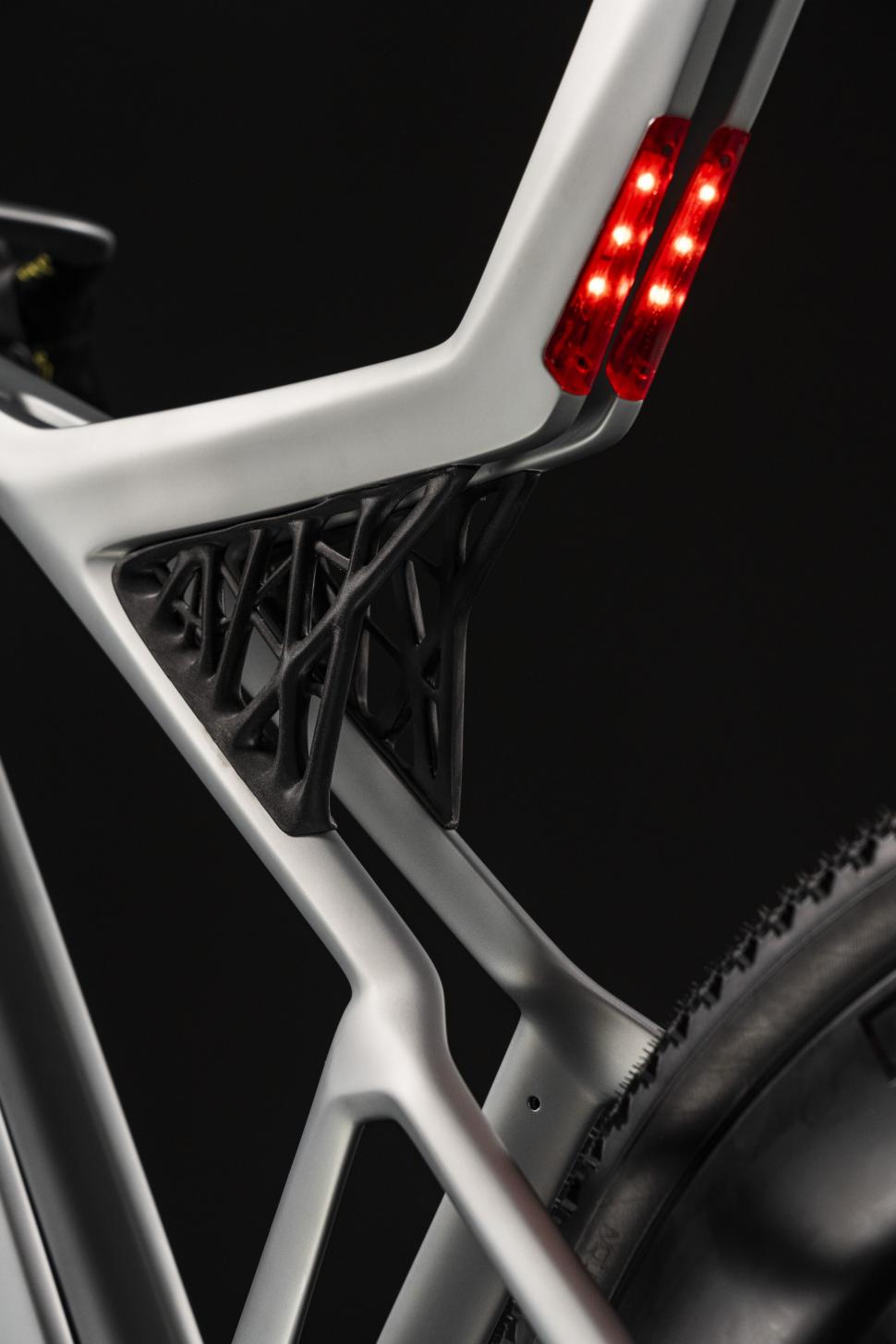
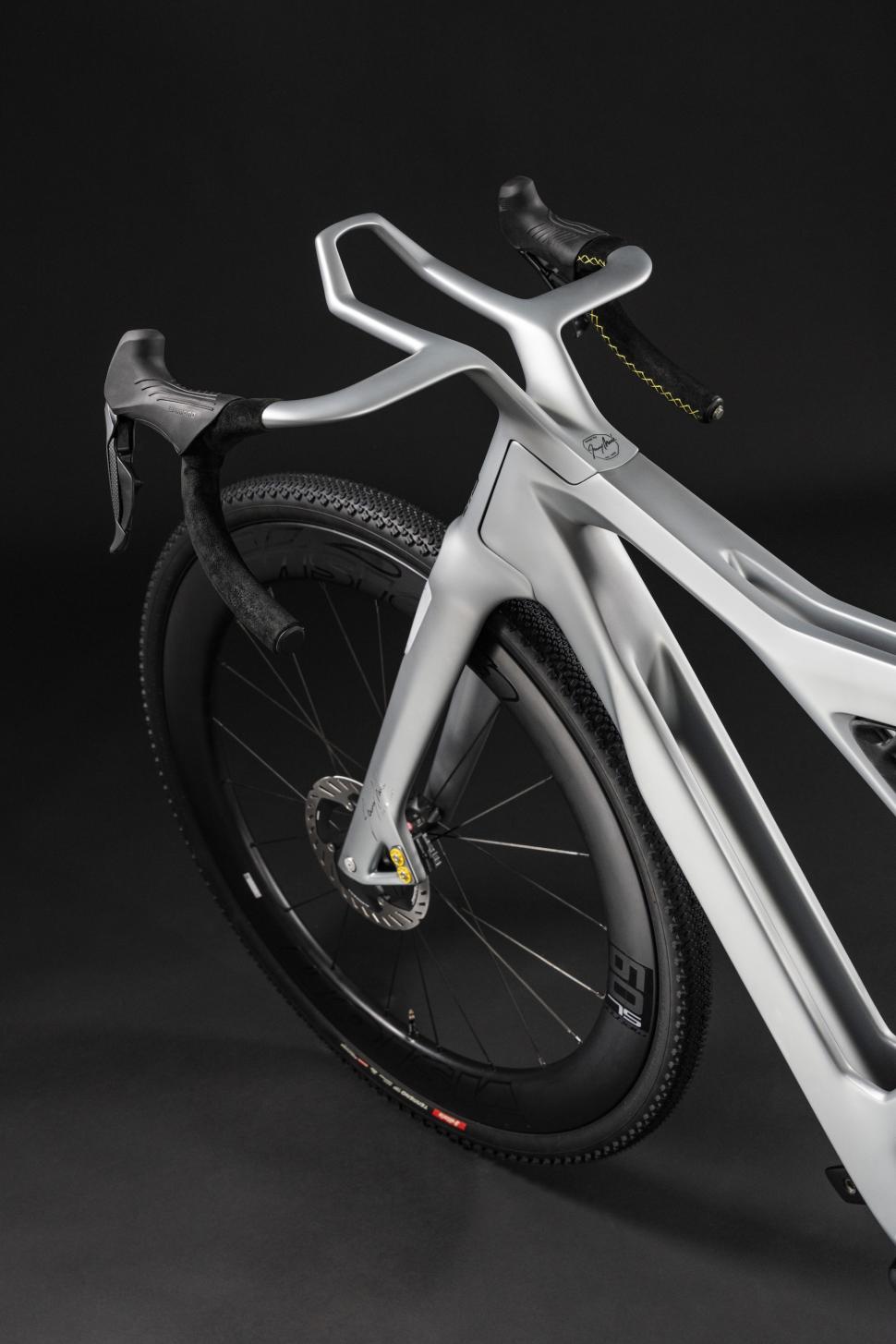
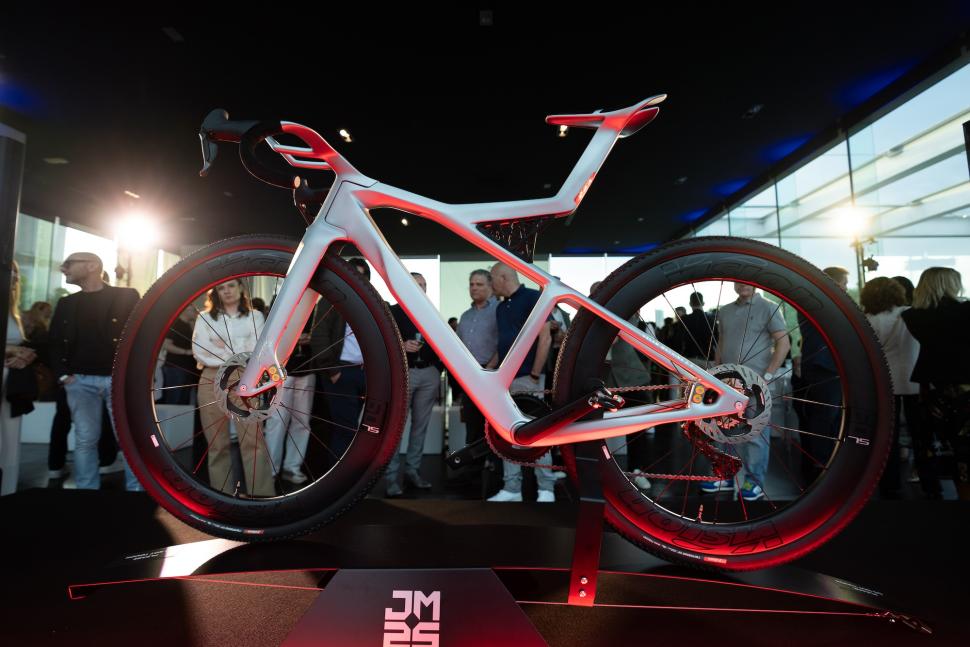
Add new comment
15 comments
Public Safety Announcement: Don't ride this on Naked Bike Ride days if you have male anatomy.
At least you won't need to dismount for a no. 2!
Well, that raises the issue of whether mudguards can be fitted
There will be some special 'integrated luggage' I'm sure.
I'd rather keep my integrated luggage where it is, thank you very much
the integrated aero/handlebar is nice and actually looks to be the correct dimensions/ratio. however, imagine having to clean that downtube channel after every ride.
The love child of an Softride and the original Factor
It looks like it's trying to reproduce by fission.
Presumably each half gets one wheel and regrows the other*? Is this what these thru-axles are for?
* Thinking about it I've seen bikes in the middle of this process about town, leaning on their drop-outs. Not infrequently they've crawled down an alley or into a bush to complete their regrowth in a sheltered location.
Mitosis, surely? Fission would involve smashing the bike into something to split it apart.
Could be some crazy Doctor Who thing going on
Parthenogenesis
Was thinking more macrobiology than micro- or physics - like starfish:
https://en.m.wikipedia.org/wiki/Asexual_reproduction_in_starfish
Although only the wheels have radial symmetry here.
It looks like 'the bike of the future' as viewed from about 1978. Reminds me of the future-cars in Logan's Run.
I've always wanted a bike that makes it more likely I'll smash the side of my knees on the top tube while pedalling
These fully integrated concepts seem to appear every few years and demonstrate a basic misinterpretation of the bicycle. Being that bicycles are powered by the rider they are inherently performance based machines, and beauty arises out of that function. So a design exercise like this one will always comes at a massive compromise of something else because it puts form over function, whether it's day to day practicality, maintenance, reliance on proprietary parts, weight, lack of customisation, etc.
I always get suspicious when designers get too far away from the good ol' double triangle frame design. The "cantilevered" seatpost looks odd to me as it's not as fully cantilevered as some other designs (i.e. the split going all the way to the headset) which means that there's going to be lots of stress halfway along the top tube which isn't usually a strong part of the frame. I'd prefer either fully cantilevered or stick with the traditional design.